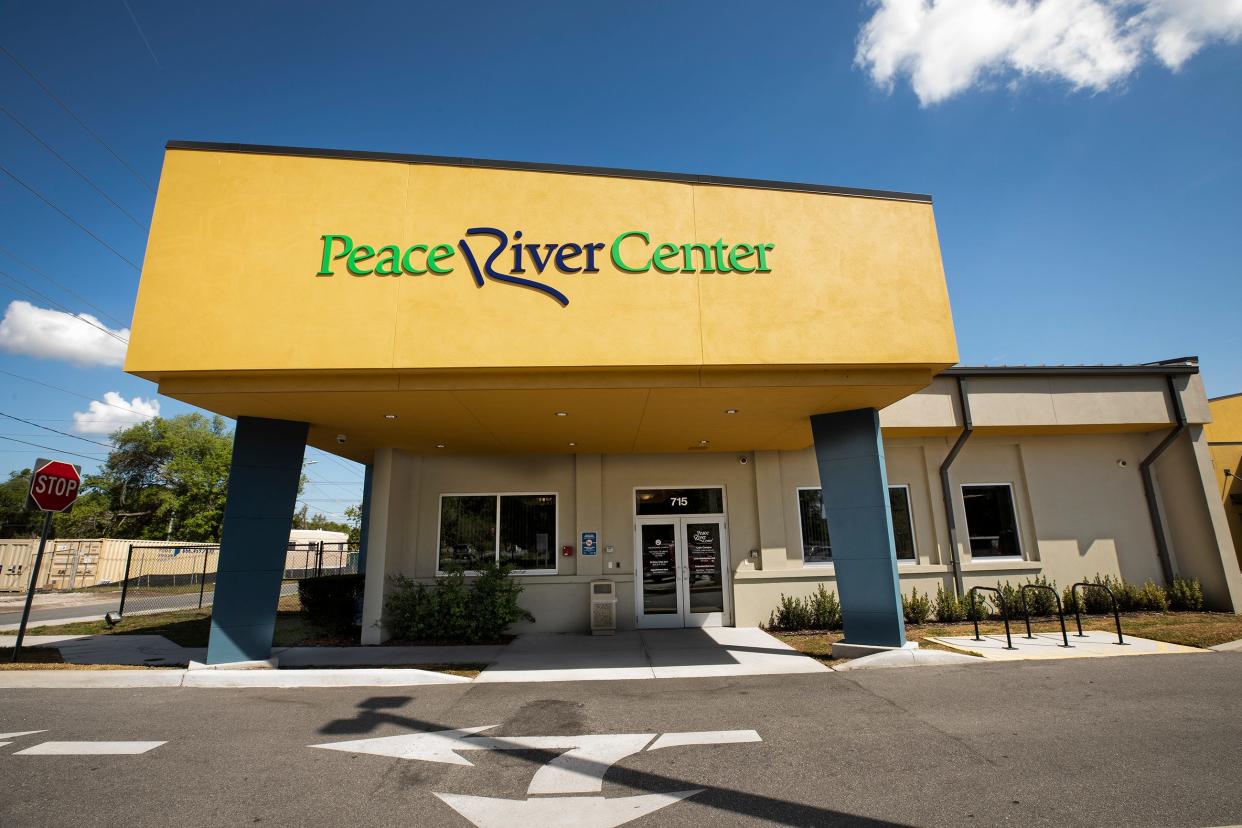Mental Health: Polk Vision releases report ‘We have what it takes ... (to) change people’s lives’

LAKELAND – The major players in mental health care, law enforcement and the court system have been meeting for more than a year to discuss what people are doing in Polk County and what needs to be fixed.
The result? A comprehensive, 250-page report detailing the area’s struggles with a mental health crisis that covers everything from not enough psychologists or psychiatrists, to a group of young people who show signs of having no hope.
One in seven of your friends, neighbors, and co-workers in Polk County (about 15%) indicate that they live with depression or are otherwise at risk for behavioral health challenges. That translates to about 100,000 people.
The ratio of the population to mental health providers is gravely lacking:
• Polk – 1,190:1
• Florida – 670:1
• The national benchmark – 310:1.
More than 14% of Florida’s 16.7 million adults – or 2.3 million – have been diagnosed with depression. That number goes up to nearly one in five for women in Polk.
Nearly one in five adults in Polk County indicate their mental health is poor or fair (19.2%) and more than 17% say they either don’t know or do not have enough people to ask for help.
One in ten people in Polk County said they needed mental health care, but did not receive it in the last year. That same number said they had poor mental health on 14 or more of the last 30 days in both Polk County and Florida.
To get help
Polk County’s Peace River Center offers a 24-Hour Emotional Support and Crisis Line: 863-519-3744 or toll-free at 800-627-5906.
“The National Association of Mental Illness shared that 90% of those who commit suicide had an underlying mental health condition, highlighting the importance of addressing and treating the root cause of mental illness as early as possible,” the Polk Vision report states. One positive statistic has emerged in the last three years: Adult suicides in the area have declined, according to statistics from the medical examiner’s office.
• 2019: 161
• 2020: 115
• 2021 up to Sept. 23: 69
The most common method of suicide death in Polk County is firearm – 12.2 people per 100,000 of the population used a firm arm to end their life.
Of the people admitted for inpatient care at area facilities last year:
• 49% include psychoses as the primary diagnoses, when a person’s thoughts and perceptions are disturbed, and the individual may have difficulty understanding what is real and what is not;
• 81% include psychoses, alcohol abuse and neuroses, a disorder involving obsessive thoughts or anxieties that can disrupt everyday living;
• 25% include alcohol abuse and dependence;
• 6% include major depression.
Nearly half – 44% – of the people treated, either inpatient or outpatient, for behavioral health issues last year had both a combined mental health and substance abuse diagnosis. And nearly one-third – 29% – of those people treated had a reaction to severe stress and/or an adjustment disorder.
Juvenile statistics were the most alarming in the report, showing that of the roughly 25,000 middle school students in Polk County, nearly 2,000 may have attempted suicide at least one time.
Juvenile suicide rates
Age range Serious thought Made a plan Attempted
Elementary 17.4% 9.8% 5.8%
Middle school 21.6% 13.9% 8.4%
High school 23.8% 17.7% 10.9%
One-fifth of Polk’s population who are 55 years or older “experience some type of mental health concern,” most commonly anxiety, severe cognitive impairment, and mood disorders, including depression and bipolar disorder. They are also dealing with “pandemic depression” because of their unfamiliarity with technology, which could keep them connected to family and friends, and their inability to volunteer because of their higher risk of COVID. They view this time as “years stolen from them.”
Ultimately, the report found that the area’s hospitals, psychiatric facilities, law enforcement agencies, and educational entities are all willing to communicate and work together to help fix a struggling system. The report’s co-chairwomen – Lakeland Regional Health Associate Vice President of Behavioral Health Services Alice Nuttall and Central Florida Health Care Director of Marketing and Communications Holly Vida – said there needs to be a coordinated way by which the community can identify, assess, support, engage, treat, and care for its residents who suffer from mental illness.
“We can’t do everything for everyone. (We) wish we could,” the report states. “However, we have what it takes in Polk County to choose a few key initiatives, do them with fidelity – no, do them until the issue is resolved – and change people’s lives. NOW is the time. WE are the ones who can make the change!”
Stories in series: Mental health in Polk County and Florida: Read every story in our series
Ledger reporter Kimberly C. Moore can be reached at kmoore@theledger.com or 863-802-7514. Follow her on Twitter at @KMooreTheLedger.
This article originally appeared on The Ledger: Report details Polk County’s struggles with mental health challenges, depression

